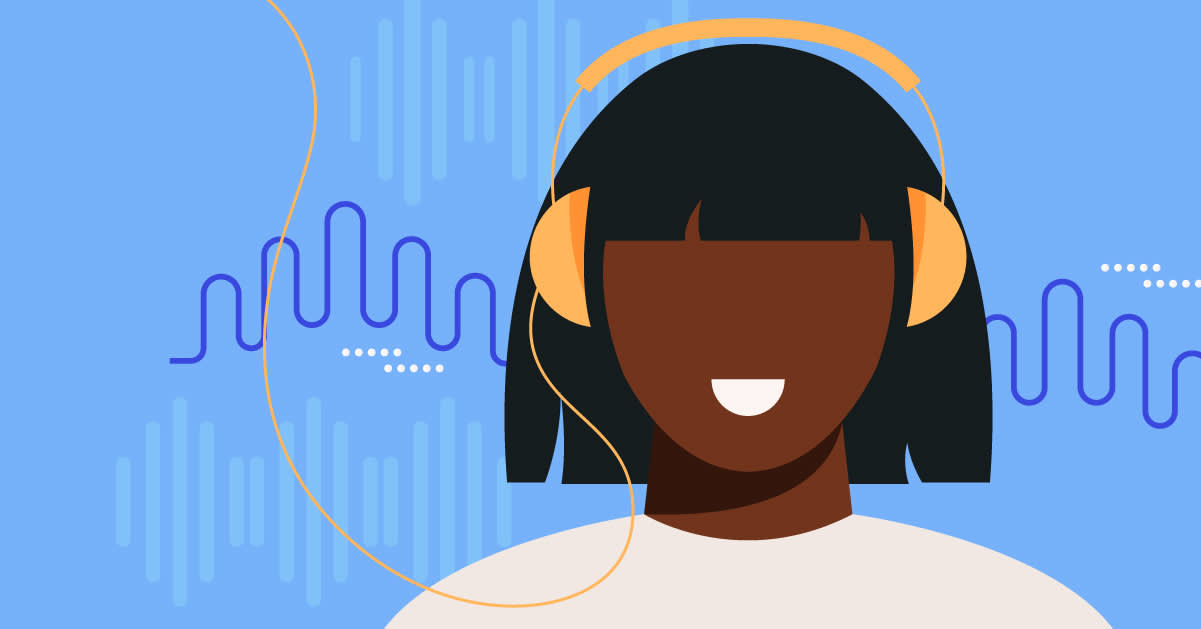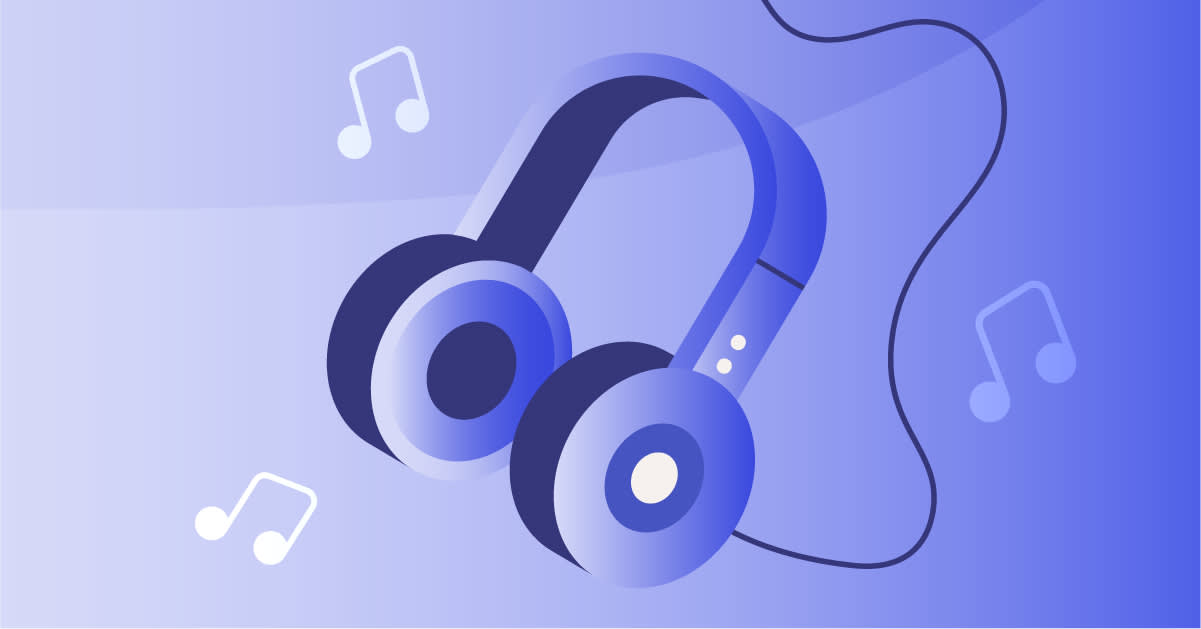The cover of Holly Brickley's debut, Deep Cuts, is adorned with a playlist of songs ranging from Public Enemy's "Fight the Power" to Kate Bush's "Running Up That Hill," tracks that are not so much musical interludes as they are pillars of the novel's narrative in their own right. As so much changes in the lives of Brickley's cast of twentysomething characters, music remains a constant: There's Percy, a music obsessive who listens with a keen analytical eye; Joe, a rising musician whose best work is dependent on Percy's critiques; and Zoe, a big-hearted punk who runs a local zine. The trio initially bond over their shared love of music and their desire to think, talk, and debate about art and sound, but before long, their lives are intertwined in a messy, wondrous way that cuts deeper than any B-Side.
Brickley's much-talked-about debut deftly dissects art and talent, meditating on the fateful magnetism between two people and examining the roles of creation and criticism. In this conversation, the author pulls at those threads further, sharing her own thoughts on music, collaboration, and the appeal of stories set in the early aughts.
Alanna McAuliffe: Deep Cuts is your debut novel. What inspired you to tell this story now?
Holly Brickley: I set out to explore this thing that has always bugged me about myself, which is my jealousy of musicians. I wanted to do it in the context of a love story, where I suspected this envy could be richly complicating. And I wanted to do it with a feminist lens, because as I got older that’s how I was starting to understand my envy of music—as a longing to be in this boys club; to have had, as a young girl, the carefree confidence that a young boy is so much more likely to have when he first picks up a guitar. I didn’t know where any of it was going to go, but those were my starting points.
One thing that really stood out about the three main characters in Deep Cuts is how complicated and layered they are. Percy, Joe, and Zoe really capture all the heart and messiness of youth, and their lives intertwine in this unflinching coming-of-age, coming-into-identity story. How did you go about bringing these characters to life?
Percy was born from the things I hated most about myself—the aforementioned envy of people with musical talent, and my somewhat critical nature—though she quickly became her own person. And Joe emerged as a sort of counterpoint to her: someone who is bursting with natural talent, and whose experience with trauma gives him more perspective on life, a willingness to try things and mess up. With Zoe I was trying to create a fierce, political mind who could keep my two main characters at least somewhat plugged into the world around them.
But these were just starting points, because people are full of contradictions, and backstories rear up in surprising ways. Percy’s critical nature is her biggest burden, but it’s also her superpower; Joe’s childhood may have given him perspective, but it’s also left a void in his life that he can’t stop trying to fill; Zoe’s patience for keeping her friends grounded does snap, when tested. These nuances emerged naturally as I wrote.
This novel is set firmly in the early aughts, with historical landmarks like September 11 and cultural touchpoints like MySpace setting the scene. Why did you choose to set your debut during this era? Was our relationship to art and music different then than it is now? And what do you feel makes the 2000s a time period of such lasting fascination for both nostalgia-seekers and those too young to have lived through them?
I was writing about people in their twenties, and I was in my twenties during the aughts. That’s the simple answer. But the more I wrote, the more I realized what a perfect backdrop it made for a story about connection and belonging. Consider the iPod, which I personally believe to be the apex of modern technology: when you could carry thousands of songs on a device in your pocket, but your boss couldn’t email you on it.
I think that’s the main appeal of the era—people talk a lot about the messy freedoms of the time, but even more important to me is how present everyone seemed, inside all that freedom. Of course, there was also less accountability—more freedom for bad actors and rampant misogyny—which plays out in the story too.
"Consider the iPod, which I personally believe to be the apex of modern technology: when you could carry thousands of songs on a device in your pocket, but your boss couldn’t email you on it."
How did you select the songs that serve as the chapter playlist in Deep Cuts? Are any of those songs and artists featured of personal significance to you or were they merely meant to serve as an indicator of character, community, and setting?
Sometimes I started with an idea I had about a song I loved, and then I would consider this idea through the eyes of Percy and what she was going through. More often, it was the other way around, where I would have a narrative need and then hunt down a song to fit that need (though when I say “hunt” I mean within my own brain/music collection ... these are all songs I love).
In one case, a song came on shuffle when I was in the shower (“What Makes You Think You’re the One” by Fleetwood Mac), and it gave me an idea for a plot point. As for whether the songs are personal or serving the story, the answer is both, but the latter was paramount.
To that end, there are several snippets of Percy’s own writing through the narrative—her zine entries, MFA writings, and blog posts—that punctuate the story with musings on music and feeling. (There’s one incisive piece on Crosby, Stills, Nash & Young’s “Our House” that still lingers each and every time I hear that song.) What inspired each of these sidebars? Were they inventions for Percy’s character or did your own thoughts on culture bleed through?
I hope I didn’t ruin “Our House” for you! Again, it’s both—the pieces often started from some little seed of a thought I’d always had about our song, but then they became something different through Percy’s filter. I’ve always been a little annoyed by the last verse of “Chelsea Hotel #2,” for example, though not to the point that I couldn’t enjoy the song. In that case as well as “Our House,” Percy’s analysis is extremely colored by the fact that she’s just suffered the first acute trauma of her life when she writes the piece. But all the history behind it, about Graham Nash and Joni Mitchell’s relationship, is true.
There’s an ongoing dialogue in the story about musical “talent” and the parameters that must fulfill, be it musical theory and a knack for instrumentation or an analytical ear for songwriting and hooks that really soar. It plays into the narrative in a fascinating way as it pertains to connection, companionship, and collaboration and in how both Joe and Percy think and talk about music. What inspired you to pull on this thread, and what’s your stance on criticism as a talent and art form all its own?
As I examined my envy of musical talent, the first question was why? Why do I covet this one particular dream of being a singer-songwriter, when I have my own talents with the written word?
"It’s a very American tendency to worship the talent of the individual, minimizing all the collaborative effort that got them there..."
Part of this has to do with the unique power of music, which is a separate theme in the book. But even within music, there are so many other talents behind that one person on stage who gets all the glory. It’s a very American tendency to worship the talent of the individual, minimizing all the collaborative effort that got them there, and I think it sucks. So yes, I do believe criticism is a talent on its own. And so is producing, and co-writing, and sound engineering, and the person who does the lighting at the venues.
Are there any books or audiobooks that you’ve particularly enjoyed as of late that you would recommend to listeners who enjoyed Deep Cuts? What about recent albums or songs?
I would recommend The Safekeep for fans of literary love stories—that book was an obsession for me last year. Sigrid Nunez has had a huge influence on me, from her first book, A Feather on the Breath of God, which I read in my late teens, and I have gifted dozens of times.
Music-wise, I love Sam Burton lately. All the Quincy Jones tributes were one of the highlights of my year. I’m a Taylor Swift fan, which is hardly an oeuvre that needs discovering, but I mention it because I think her fans might see themselves in Percy—in the way she obsesses over songs and melodies, the way she metabolizes other people’s lyrics into her own life.
As we wrap up, congratulations on such a buzzy debut! What can listeners expect to hear from you next?
I’m working on another love story, again about an obnoxiously opinionated woman. (I guess that’s my thing?) This one is set in the present and grapples more with climate change and existential questions about god and species extinction, but somehow it’s also turning out to be funnier than Deep Cuts. Who knew!


















